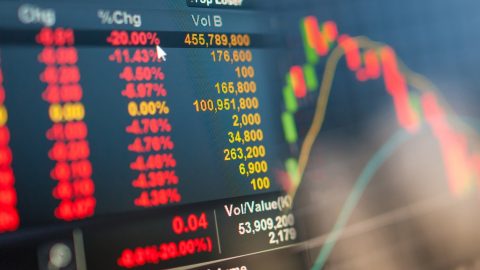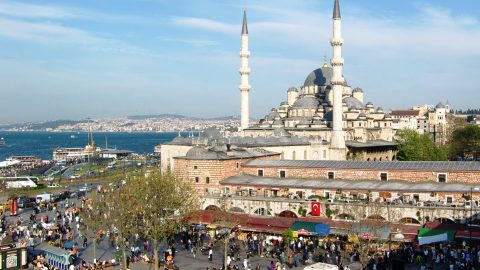Articles about “Turkey”
Turkish financial markets temporarily under pressure following political turbulence
The Turkish stock market has been turbulent recently: the arrest of Istanbul mayor Ekrem Imamoglu caused massive uncertainty. What does the political unrest mean for the Turkish economy and the Istanbul stock exchange?
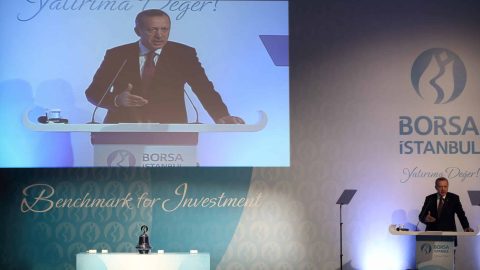
Turkey: Erdogan combats crisis with new economic programme after change of staff
After unexpected replacements of the head of the central bank and the finance minister, Turkish President Recep Tayyip Erdogan recently declared war on the inflation and currency depreciation in his country with a new economic programme. In doing so, Erdogan is radically turning away from his previous economic policy line by relying on foreign investment and monetary stability.

IMF Spring Meeting: Emerging Markets – What’s next?
The IMF Spring Meetings of the International Monetary Fund in Washington hosts events for emerging market investors. Our senior fund manager Felix Dornaus was there & reports on his most important impressions.
Turkey after the local elections
The local elections in Turkey had been built up by President Erdogan to be a test of his policies. What do the results mean for Turkey’s economy?
Stable prospects for Central and Eastern Europe
The countries of Central, Eastern and Southeastern Europe are among the most important economic growth markets for Europe. How are the prospects for next year?
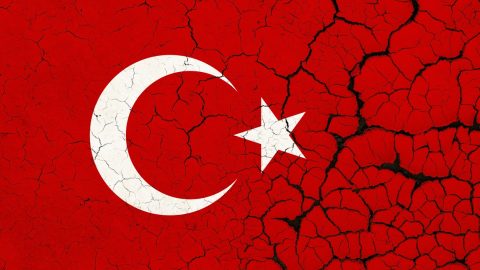
Turkish lira – what are the reasons behind the current crisis?
The Turkish lira reflects the difficult situation Turkey is currently in. This year alone, the currency has shed more than 45% of its value to date. Interview update with Anton Hauser, Senior Fund Manager, Eastern Europe bonds.
Market view: Increased uncertainty
The performance of most asset classes in the year to date has been mixed, to put it euphemistically. Is there a common underlying factor? Can we expect to see a better second half of the year?
Post-election Turkey – What’s next?
Has the political and economical backdrop improved as result of the election in Turkey? In our newest blog post we’re answering 7 of the most important questions.
Is Turkey about to run into a balance of payments crisis?
The Turkish central bank was forced to raise its most important interest rate by 300bps and to re-align its monetary instruments. What are the reasons for this nosedive?
IMF conference in Washington: cautiously upbeat sentiment about emerging markets
Senior Funds Manager Felix Dornaus summarises his learning points from the presentations by the International Monetary Fund in Washington on 20 to 23 April 2018. Who were the winners and who the losers?

Turkey´s astonishing rush to early elections
Amalia Ripfl, Senior Fundmanager explains Turkey´s rush to early elections: who profits and what does it mean for the equity market?
Emerging markets – not a pure commodities story any longer
The global economy is experiencing significant growth, and the emerging markets have felt the increased economic growth rates as well. Even in problematic countries such as Brazil or Russia, the situation has been picking up due to the increased oil price.

Afterthoughts on the Turkish referendum
After the ballots were counted on 16 April 2017, the state-run Anadolu news agency reported that “Yes” had won by securing 51.4% of the votes, which was later also confirmed by the Electoral Commission. Serious concerns were raised by the OSCE. It is also important to note that the referendum took place during a “state of emergency”. That is to say, in a highly repressive climate in which the President and the government controlled the media, jailed critical journalists and leaders of pro-Kurdish parliamentary opposition, and arbitrarily detained and prosecuted the President’s opponents. The result of the referendum has paved the way for the most controversial changes that Turkey has faced in its history.
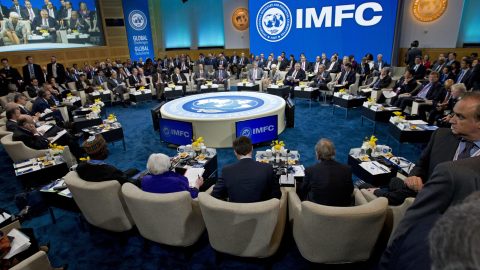
My impressions from IMF meeting in Washington: Emerging markets “alive and kicking”
The spring meeting of the International Monetary Fund was held in Washington from 20 to 23 April. This event was the reason for an investor conference that I attended in order to get an idea of the status quo of the global economy as well as of risks and opportunities.

What the Turkish referendum means for the capital markets
A “Yes” to Erdogan’s planned constitutional amendment in Turkey would constitute a double-edged sword for investors: the planned presidential system could mean a short-term relief for the markets and for the economy. However, in the long run, this scenario harbours big risks. That being said, a “No” would not help investors either.
Turkey Outlook 2017 – Light at the end of the tunnel
Turkey faced a lot of difficulties in 2016 – both on the economic and political side. On the economic front, the first half of the year was a recovery period where most of the macro data showed improvement, political turmoil had diminished and equity market was pretty much on hold while the market participants had […]
Turkey’s coup attempt
What happened? Last Friday evening, a fraction of the Army mostly medium rank officers, had undertaken a coup attempt and seized airports, bridges, TV stations and military headquarters, before attacking the Turkish parliament, leaving the building charred and damaged, and have reasoned to seize power to protect the democracy from the Government.
Turkish Elections Update
With the current outcome, the uncertainties in Turkish economies are off the table. AKP (governing party Justice and Development) will now have 316 seats in the parliament. This is enough to form a single party government, still, it falls short of constitutional majority – the most market friendly outcome. There will be a positive sentiment […]
Turkish Elections Round Two
Turkish early elections to be held on 1 November, 2015; and once more, the market is waiting for a positive outcome. Neither the country nor the market has more tolerance to absorb any further political uncertainty; however, the election outcome may not be too different from the results back in June 2015. Nevertheless, this time […]
Turkey and the feeling of summer time sadness
We are almost approaching the end of the summer but it looks like we are back to April 2015 in Turkey. The election outcome and aftermath did not work as politicians had desired and the efforts to form a government have failed so far.

Could the outcome of Turkish parliamentary elections lead to increased volatility?
The upcoming parliamentary elections on Sunday in Turkey could force Erdogan to postpone his plan for a new constitution and could lead to new political leaders in the Ministry of Finance and the Ministry of Economics. This would trigger an increase in uncertainty and consequently a higher degree of volatility for the Turkish Lira and […]




